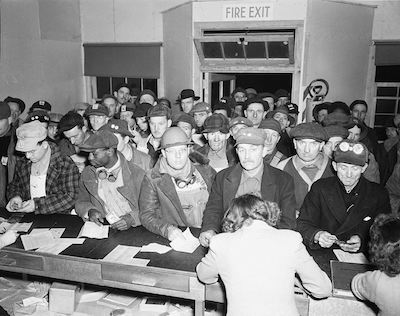Long after the Cold War had ended, the United States Department of Energy (DOE) found themselves continually litigating occupational illness claims. The Department (DOE) had always been held harmless for any correlation between the jobs they provided and the illnesses that were occurring among their staff and former workers. Over time, however, our government grew aware of the reality of the consequences of employee exposure to the testing and creation of nuclear devices. The concern of this reality meant that a large number of nuclear weapons workers at Department of Energy (DOE) sites along with their vendor workers had been put at great risk.
As a result, the United States Congress passed a law that was signed into action by President Clinton in 2000. This program entitled the “Energy Employees Occupational Illness Compensation Program Act (EEOICPA)” was enacted to specifically compensate our citizens for the risk and price they have and are enduring as a result of serving our country.
The EEOICPA program has continued to grow, expand and evolve over the past several years. One of the major progressive movements was made again in 2015 as a result of Senators Mark Udall of Colorado and Lamar Alexander of Tennessee reintroducing their bipartisan plan to create an independent advisory panel to help Nuclear Workers get the help they had earned. Although this introduction was made in August of 2013, the Advisory Board was not mandated until 2015 under the National Defense Authorization Act. This Board consists of 15 members from the science, medical and claimant communities and was established to advise the Secretary of Labor on aspects of the EEOICPA program. The Charter of the Advisory Board states their respect for their own purpose best:
Since World War II, hundreds of thousands of men and women have served our Nation in building our nuclear defense. Thousands of these courageous Americans, however, paid a high price for their service, developing disabling or fatal illnesses as a result of hazards unique to nuclear weapons production and testing. The Federal Government enacted the Energy Employees Occupational Illness Compensation Program Act of 2000 (EEOICPA; 42 USC §7384 et seq.) to provide fair and timely benefits to workers who contracted illnesses related to exposure to radiation or other toxic substances while employed by the Department of Energy (DOE) or its contractors. The statute specifically provides lump-sum compensation and health benefits to eligible DOE nuclear weapons workers (including employees, former employees, contractors and subcontractors) and lump-sum compensation to certain survivors if the worker is deceased. The Advisory Board on Toxic Substances and Worker Health is tasked with providing specific categories of technical advice to the Secretary regarding EEOICPA.
Since the enactment of the EEOICPA program over twenty scientific studies have been published that indicate nuclear workers have increased risks of dying from cancer and other diseases. They have further shown a correlation between excess disease and radiation or beryllium exposure. Furthermore, these studies have indicated that 98% of radiation induced cancers in nuclear workers occurred at radiation levels less than the existing maximum “safe” levels.
Thankfully, today our patriots are getting the care they deserve. It is now our responsibility as a family, and a community of friends and caregivers, to make sure that we stay abreast of the changes that come with the EEOICPA program. It is always important to make sure that our voices are heard to ensure that continued support and care is given to those who have sacrificed for the well-being of our nation and our freedom.

